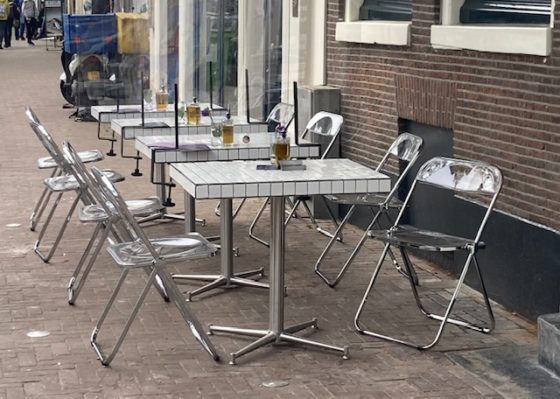The Dutch do work few hours and productivity is not rising: CBS chief


Claims by commentators that people in the Netherlands have the shortest working week in Europe are not exaggerated, according to the chief economist at national statistics office CBS.
Pieter Hein van Mulligen outlined the problems in the Dutch labour market and what can be done to solve them in a long Twitter thread on Wednesday. He points out that one in three firms now say the shortage of staff is the biggest obstacle they are facing, and that there are now 133 vacancies for every 100 people looking for a job.
De arbeidsmarkt is ongekend krap. Bedrijven schreeuwen om personeel en werk blijft liggen. Wat betekent dat, hoe komt het en wat is er aan te doen? En welke rol spelen het onbenut arbeidspotentieel, vergrijzing en migratie? Een draad
— Peter Hein van Mulligen (@phvmulligen) June 1, 2022
Last week, columnist Sander Schimmelpenninck aroused the ire of many for saying in a column that working as little as possible has become a national sport. And British writer Ben Coates was similarly slammed for publishing a Eurostat map showing average working weeks. Economist Mathijs Bouman too reaped plenty of criticism for pointing out that Dutch women tend to work part time even if they don’t have children.
All were commenting on the well-documented shortage of workers across all sectors, and what can be done to solve the problem.
Van Mulligen says the greying of the population has led to there being fewer people available to work. In 1950, he says, there were seven people aged 20 to 65 for every person of retirement age, but that has now gone down to just three.
Bringing in more people from abroad to work would be a temporary option but ‘this group also retires at some point’ Van Mulligen said.
Working longer hours
The Netherlands has some 1.1 million people who would like to work or work longer hours but their number gone down over the years as the labour market tightens, he said. At the same time, 70% of the Dutch aged between 15 and 75 have some form of work, and that is the highest percentage in the EU, ahead of Sweden, Estonia and Germany.
The Netherlands, statistics show, does have the shortest average working week in Europe – around 32 hours a week, compared with over 40 in Greece, Bulgaria and Romania.
If you combine the two figures, the Dutch also work few hours compared with most other EU countries – just 22 on average, he points out. ‘So if we are talking about unused potential labour, we are talking about hours, not people,’ Van Mulligen said.
Getting more people to work longer hours will not be easy, he argued, because people do voluntary work or enjoy their leisure. They may also end having to contribute more to childcare costs if they have a higher income.
And while the Dutch workforce is extremely productive, the figure has been stable since 2010 and that is not good news for economic growth and prosperity. The main way forward, he said, is to boost innovation and pay.
Innovation
Van Mulligen is not the only one with that view. Social affairs ministry inspectors last month warned that people moving to the Netherlands to do low-skilled work are living in ‘increasingly miserable conditions’ and that Dutch firms are opting to use cheap foreign workers rather than innovate or improve working conditions.
And at the end of last month, the government advisory body SER, which is made up of employers and unions, said that teachers, care workers and defense staff must be motivated to work longer hours in the short term to avoid staff shortages in future.
Pensioners too, should be appealed to to take up the slack in many sectors. ‘The number of vibrant elderly will grow in the next few years’, the report said.
Bringing in more workers from abroad can be part of the solution, SER said, but more research needs to be done to find out which sectors would benefit.
Thank you for donating to DutchNews.nl.
We could not provide the Dutch News service, and keep it free of charge, without the generous support of our readers. Your donations allow us to report on issues you tell us matter, and provide you with a summary of the most important Dutch news each day.
Make a donation